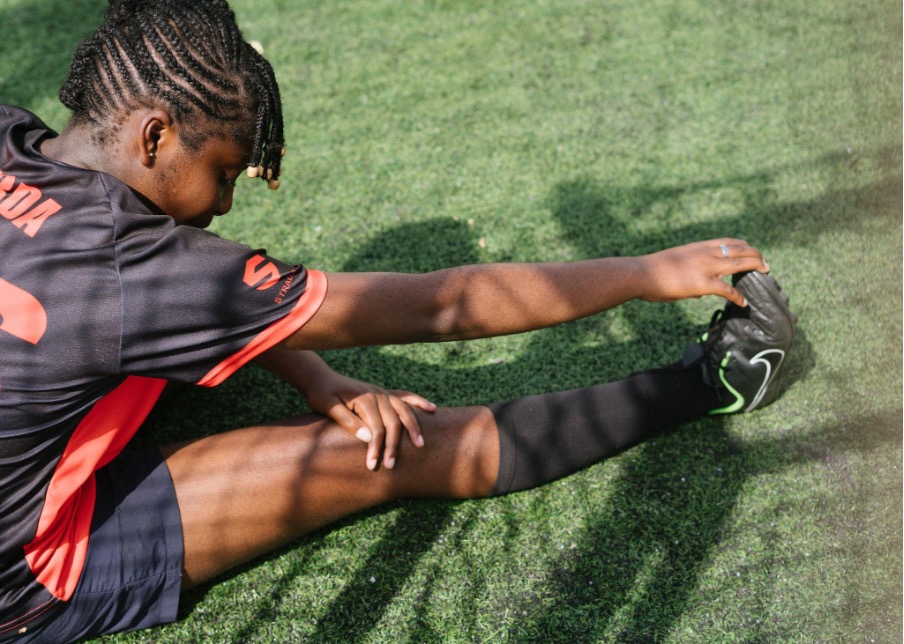

 Message sent
Message sent
 Change password
Change password


 Be part of an amazing global community
Be part of an amazing global community
 Browse 1000s of subjects, from Spanish to Philosophy
Browse 1000s of subjects, from Spanish to Philosophy
 Enjoy 1-to-1 learning and teaching sessions
Enjoy 1-to-1 learning and teaching sessions
Already have an account? Log in


Women are making history – this time in the Sports field. England’s Roses and the Lionesses have made the news by making it to second place at the World Cup finals 2023. Although we didn’t win – Australia’s Diamonds won 61-45 at the Netball World Cup in Cape Town[1], and Spain claimed their win 1-0 at FIFA Women’s World Cup in Sydney[2]; their great achievement could really be felt worldwide. FIFA president Gianni Infantino said that for the Women’s World Cup, "we had almost two million spectators in the stadiums - full houses everywhere - and two billion watching all over the world”. With this groundbreaking media coverage for just one of these spectacular matches, it really jolts the idea of a stronger female sports presence in the world.
Believed to be an uncharted territory, history in fact shows us that women have been fighting barriers in sport – and continue to fight – for centuries. Although equal opportunity is guaranteed under law[3], the sports industry continues to be one of the toughest markets around. Since the early ages, women have fought for equality within the sports field. From issues such discrimination with pay to earning less prize money, women have always had to work harder in the sports profession. Even as early as the late 90’s, women who performed well at the Olympic level were often subject to invasive gender confirmation exams. These tests were designed to ensure that athletes were only allowed to compete as their sex - yet only female athletes were subjected to them and they were largely fuelled by the anxiety surrounding the "unfemininity" of some female athletes. Despite the abolishment of this practice in 1999, in 2011 the International Association of Athletics Federations required mandatory tests for high testosterone for female athletes, while no such testing was required for male athletes[4].
These issues have been on the forefront of Women’s sports for centuries. This stereotype however is slowly proving to be out of fashion as women once again make history. The success of England’s Football and Netball Team at the 2023 World Cups continues to prove that women are just as capable as men and they continue to re-write the future of sports.
History shows us remnants of the efforts of ancient women that first started paving the road to this new and uncharted boundary in sports.
During the Victorian age in Western Europe, there was an era of immense sexism towards female athletes. The ideal Victorian woman was supposed to be gentle and frail and myths began to emerge surrounding fertility issues and harm to reproductive organs to women who partook in any kinds of sport. Women were also said to have a finite amount of energy in their bodies and wasting this energy on sports or higher education would mean it would lead to weak offspring, rendering them unattractive to men. Yet with time, women began to overcome this stigma; informal athletic clubs began to form in the late 1800s and early 1900s. 22 women competed in the 1900 Olympics alongside men in events such as sailing, croquet and equestrian sports. They also took part in tennis and lawn golf, which were categorised as women only events.
Speaking of the Olympics, in Ancient Greece, although forbidden to take part in most Olympic events, women were in fact able to take part in foot races and win Olympic victories through equestrian events. The Heraean Games depict the first recorded women’s athletic competition in 6th Century BCE, held in the stadium at Olympia[5]. During these games, it was a standard for Spartan women to participate and compete in the same sports as men, such as foot racing, javelin throwing and wrestling.
Although wrestling in particular is now associated with very masculine connotation, this is not the case for the Jola tribe in Senegal. There, the women of the tribe have been proving their womanhood for thousands of years through wrestling, signifying a right of passage. They would only stop wrestling when they became pregnant.
Gender stereotypes are dangerous and can cause women to doubt themselves and question their own abilities, especially in sport. Female athlete not only get much less media coverage in games, but also get paid significantly less than their male counterparts. But this form of sexism does not just come from the big institutions, it comes from every one of us. Gender roles are changing for both men and women and it is time for us to educate ourselves about the world from each other, and eradicate any gender stigmas and stereotypes we are still holding on to. Perhaps this great success of the England Roses and the Lionesses may educate us all and continue to wider the success of women in sports.
This is where 8Billionminds are already a leader in change. At 8BM, we allow everyone equal rights to learning opportunities. We are a platform that provides free virtual education without the bias or stereotype. To learn more about women’s rights, football, netball and so much more, sign up to our education platform, completely for free.
References:
[1] Australia beat England to be crowned champions at Netball World Cup 2023 | SuperSport
[2] Spain vs England FIFA Women's World Cup 2023 Final Highlights: Carmona scores as ESP defeat ENG to clinch maiden WWC | Hindustan Times
[3] https://www.britannica.com/event/Title-IX
[4]https://www.justice.gov/crt/title-ix#:~:text=Title%20IX%20prohibits%2C%20with%20certain,in%20education%20programs%20or%20activities.
[5]https://kinesiology.csp.edu/sports-coaches-and-trainers/a-brief-history-of-women-in-sports/
Gianni Infantino - LinkedIn
https://www.linkedin.com/posts/fifapresident_footballunitestheworld-activity-7098281454433890308-BN58/